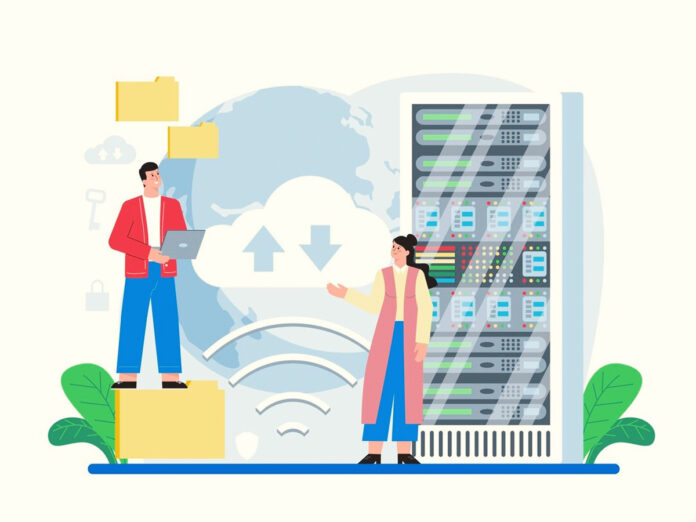Fintech Staff Writer
As cloud usage scales across organizations, FinOps, or financial operations for cloud cost management, has emerged as a common practice for governing expenditures while maximizing efficiency. With cloud usage accelerating due to digital transformation, organizations are increasingly turning to intelligent cloud management tools and automation techniques to make FinOps scalable and effective. This approach leverages real-time analytics, machine learning (ML), and automation to control cloud costs dynamically, aligning spending with business goals. Let’s explore the primary tools and techniques enabling scalable FinOps through intelligent cloud management.
Real-Time Monitoring and Cost Analytics Tools
A key pillar of scalable FinOps is continuous visibility into cloud costs. Intelligent cloud management tools provide real-time monitoring and analytics capabilities that help organizations track spending patterns, predict costs, and take proactive measures to optimize usage. Tools like AWS Cost Explorer, Google Cloud’s Cost Management, and Microsoft Azure Cost Management and Billing allow companies to analyze cloud expenses across departments, services, and regions. These tools also offer detailed insights that support granular cost allocation, helping companies identify waste and avoid over-provisioning of resources.
Further, advanced FinOps platforms like CloudHealth, Apptio, and Flexera add an extra layer of sophistication by aggregating data from multiple cloud providers into a single dashboard. This consolidation is invaluable for multi-cloud environments, where cost visibility is often fragmented. By automating reporting and providing cost breakdowns, these tools empower FinOps teams to make data-driven decisions without the need for labor-intensive manual cost tracking.
Policy-Driven Automation for Cost Optimization
Automating cost optimization through policies is another cornerstone of scalable FinOps. Intelligent cloud management tools allow companies to set up policies that automatically enforce spending limits, resource usage thresholds, and service selection. For example, organizations can configure policies to automatically shut down idle virtual machines, reallocate resources based on usage trends, or alert teams when predefined cost thresholds are reached.
These automated actions reduce human intervention and help keep cloud costs in check, especially in dynamic environments where usage may vary widely. Platforms like Terraform and Pulumi enable infrastructure as code (IaC), allowing teams to codify and manage cloud resources. When integrated with FinOps tools, IaC allows policies to be automatically applied to new resources as they are provisioned, ensuring continuous compliance with the organization’s FinOps objectives.
Read More : Three Ways Small Banks Can Build the Right AI Talent Pipeline
Machine Learning for Cost Prediction and Anomaly Detection
Machine learning plays a transformative role in FinOps by enhancing predictive capabilities. ML algorithms analyze historical usage data to forecast future cloud expenses accurately, enabling organizations to budget effectively. ML can also detect anomalies in real-time, such as unexpected spikes in cloud usage or costs that may indicate misconfigurations, security breaches, or inefficient resource allocation. This capability is critical in multi-cloud setups where tracking disparate data sources manually would be challenging.
Automated Cost Allocation and Tagging
Effective cost allocation is essential in FinOps, as it allows companies to attribute costs to individual departments, projects, or products. However, tracking expenses in large, distributed cloud environments can be complex without a robust tagging system. Automated tagging solutions within intelligent cloud management platforms help standardize this process by ensuring that all cloud resources are tagged consistently.
Some advanced FinOps solutions can even retroactively tag resources or correct tags based on defined policies, simplifying cost tracking across the organization. This enables teams to generate accurate reports, improving accountability and transparency.
Scaling FinOps Culture Through Collaboration and Knowledge Sharing
For FinOps to succeed on a large scale, cross-functional collaboration is essential. Intelligent cloud management tools that support FinOps often include features that foster transparency and communication, allowing finance, operations, and development teams to work together. For instance, many platforms offer customizable dashboards that show cost and usage data tailored to each team’s needs, providing shared visibility.
Beyond technology, successful FinOps adoption requires a culture of accountability and awareness around cloud spending. Training programs, collaborative planning, and usage reviews are some practices that can help teams understand the financial implications of their cloud usage. In some organizations, gamified approaches to cost reduction are used, where teams are rewarded for innovative solutions to optimize cloud costs.
Future of FinOps with AI-Driven Recommendations and Self-Healing Systems
The future of FinOps is likely to see even greater reliance on AI-driven insights and self-healing systems. Some platforms are now capable of not only recommending cost-saving actions but also executing them autonomously. For example, self-healing systems can identify an underutilized server and automatically resize it or shift the workload to another server without manual intervention.
As AI technology matures, FinOps platforms may evolve to provide more intelligent recommendations based on business context, balancing cost savings with performance requirements in real-time. This AI-driven approach promises a more resilient, scalable FinOps framework capable of managing the complexities of large, distributed cloud ecosystems.
Automating FinOps with intelligent cloud management tools and techniques is essential for organizations seeking to scale their cloud environments while maintaining control over costs. Real-time monitoring, policy-driven automation, ML-based predictions, and cross-functional collaboration provide a solid foundation for effective FinOps practices. As AI and automation continue to advance, the future of FinOps will likely be defined by self-optimizing systems that adapt in real-time, aligning cloud usage with organizational goals and operational efficiencies.
Read More : Global FinTech Interview with Yaacov Martin, CEO at The Jifiti Group
[To share your insights with us, please write to psen@itechseries.com ]
